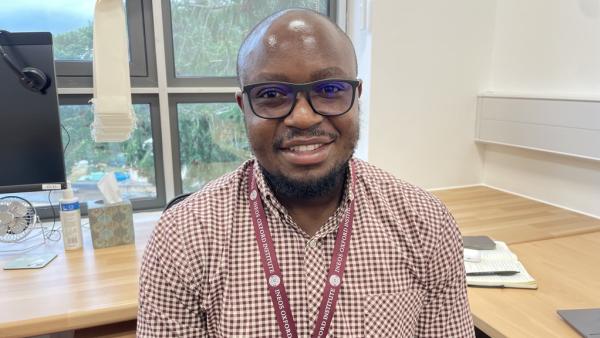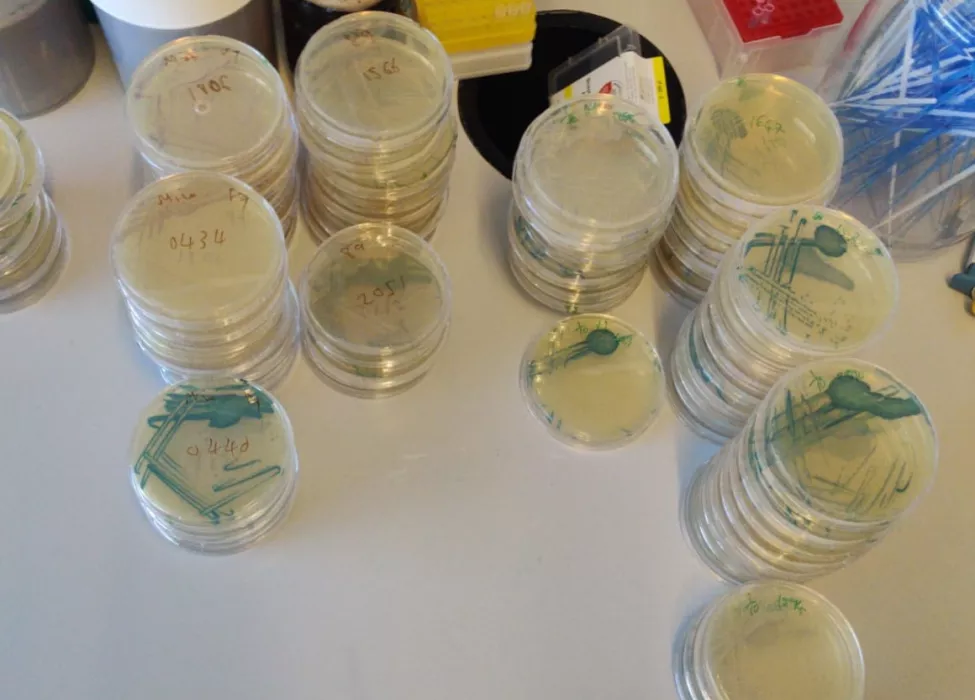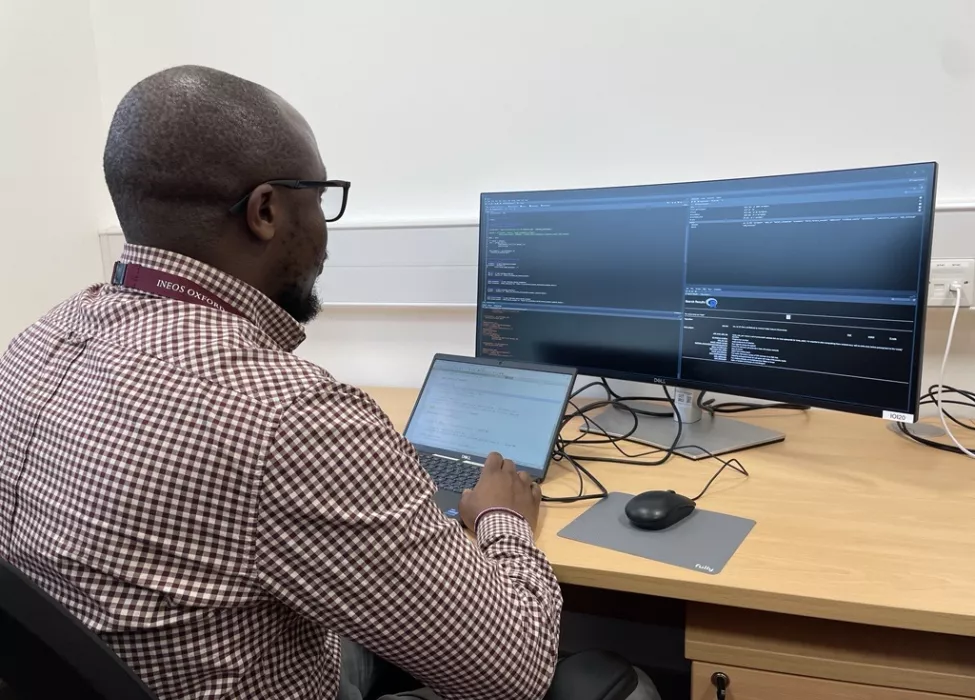
Research at the IOI is guided by our global surveillance programmes in countries most impacted by antimicrobial resistance (AMR). We are working in collaboration with 13 countries across Asia and Africa to identify the spread and impact of AMR in societies.
To achieve this, we collect clinical and genetic data of patients from hospitals in these countries, which is then analysed in our labs in Oxford.
Our data manager Jared Oduwo is responsible for processing this data so that it can be used by scientists in the IOI labs.
What are your responsibilities as a data manager of the IOI?
We collect clinical and genetic data from patients with bacterial blood stream infections in hospitals. Once this data has been collected by doctors, they enter it into our database called REDCap, so that it can be studied by the research team in Oxford.
Data management covers a breadth of responsibilities from ensuring that our data collection processes have clear guidelines and are documented well, making sure that data access and security protocols are met; to quality assurance. I use programming languages, such as R and Stata, and am involved in conducting training for staff on REDCap and data management processes.
How has your career journey led to you becoming a data manager?
I grew up in rural Kenya and accessing education and healthcare wasn’t particularly easy. My school was located within a hospital. Interacting with hospital staff from a young age developed my passion for science and medicine. I decided to study statistics at university, and after graduation started my career with an internship in the Kenyan Medical Research Institute, working on malaria research.
Managing clinical data has allowed me to combine my passion for medicine with my skills in data. The impact of what we’re doing – changing the lives of future generations – makes this role hugely rewarding.
How does your work contribute to the IOI’s research?
I link the work that clinicians and doctors are doing on-site with the research that our scientists are doing at the IOI – data management is about building that bridge. My goal is to ensure that clinicians are able to capture and input data easily into our system and researchers are able to access it and interpret it accurately. This helps us to compare the burden and impact of AMR in different locations.

Which teams in the IOI do you work with most closely?
I work closely with the scientific team, specifically with the BALANCE (Burden of AMR and treatment failure in low-, middle- and high-income countries) and BARNARDS (Burden of Antibiotic Resistance in Neonates from Developing Societies) leads. I also work with many of the DPhil students across these programs.
What are some challenges you face in your role?
People tend to underestimate the importance of collecting data. The data that we are collecting helps paint a picture of how bacterial resistance is emerging, which in turn helps doctors and researchers understand the efficiency of medicines.
However, doctors and clinicians working in these hospital sites are extremely busy, and sometimes don’t respond in time to some of our data related queries which in turn delays the data cleaning process.
So I have had to learn to clearly communicate the importance of data collection and the whole query resolution process, and how it will benefit the study in the end.
What are you looking forward to this year at the IOI?
Our main goal in data this year is to build an interactive dashboard for our projects, and to streamline our data processes by building automated data systems. I also hope to complete the exams for my Masters qualification, and attend training and clinical data conferences.

What is the best part of your day?
Working as part of the team and getting to know my colleagues is such a highlight for me!
